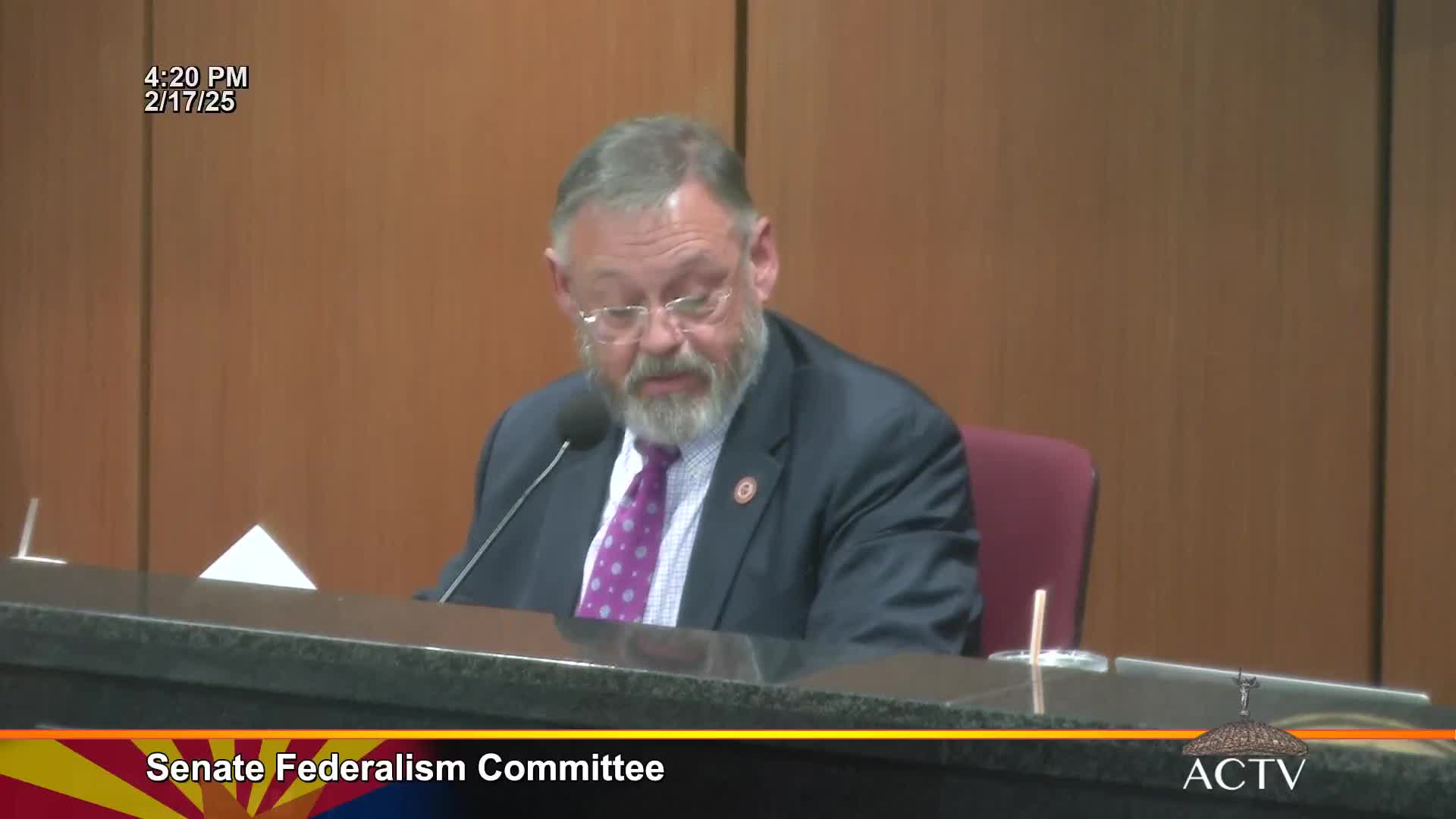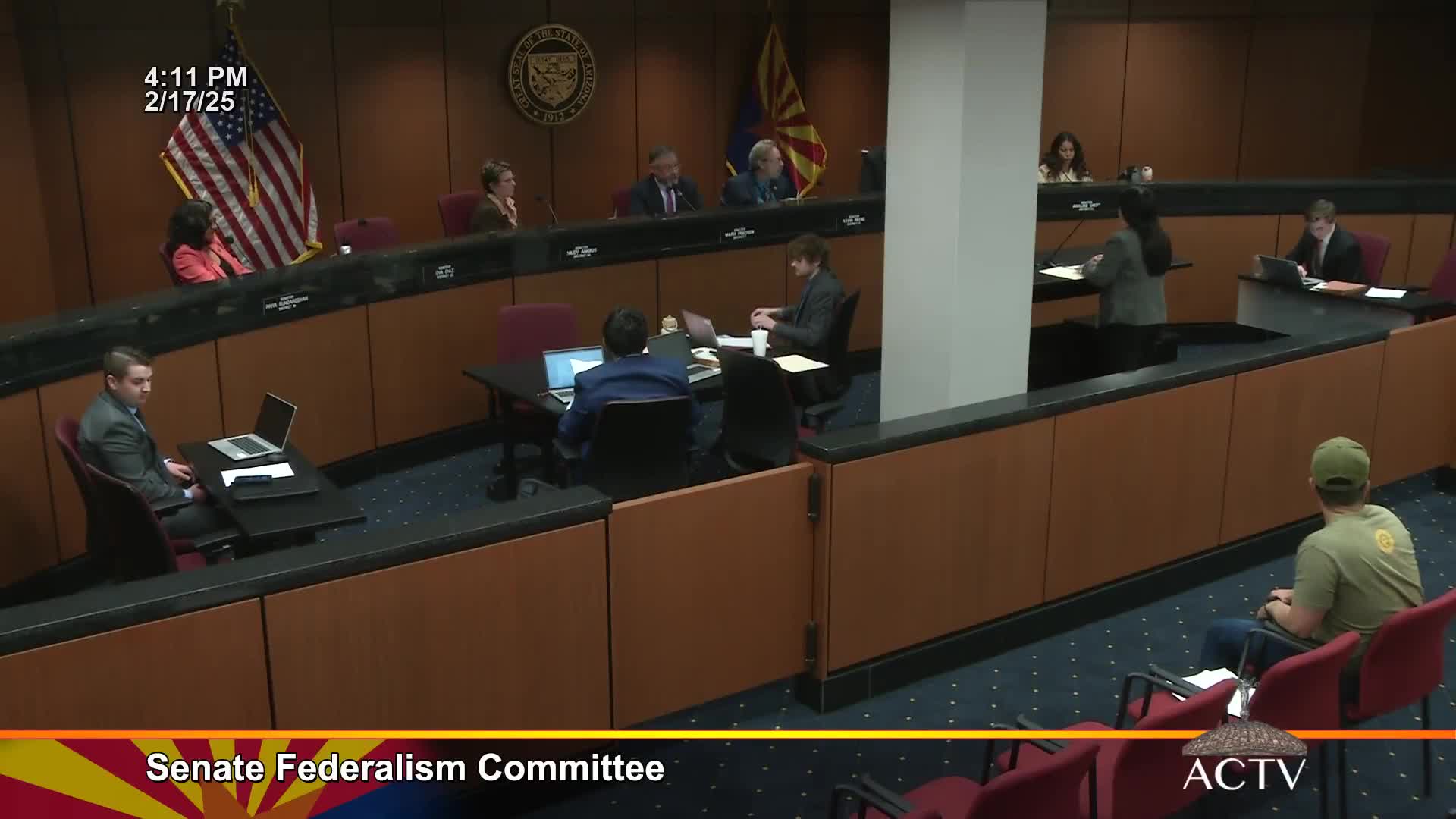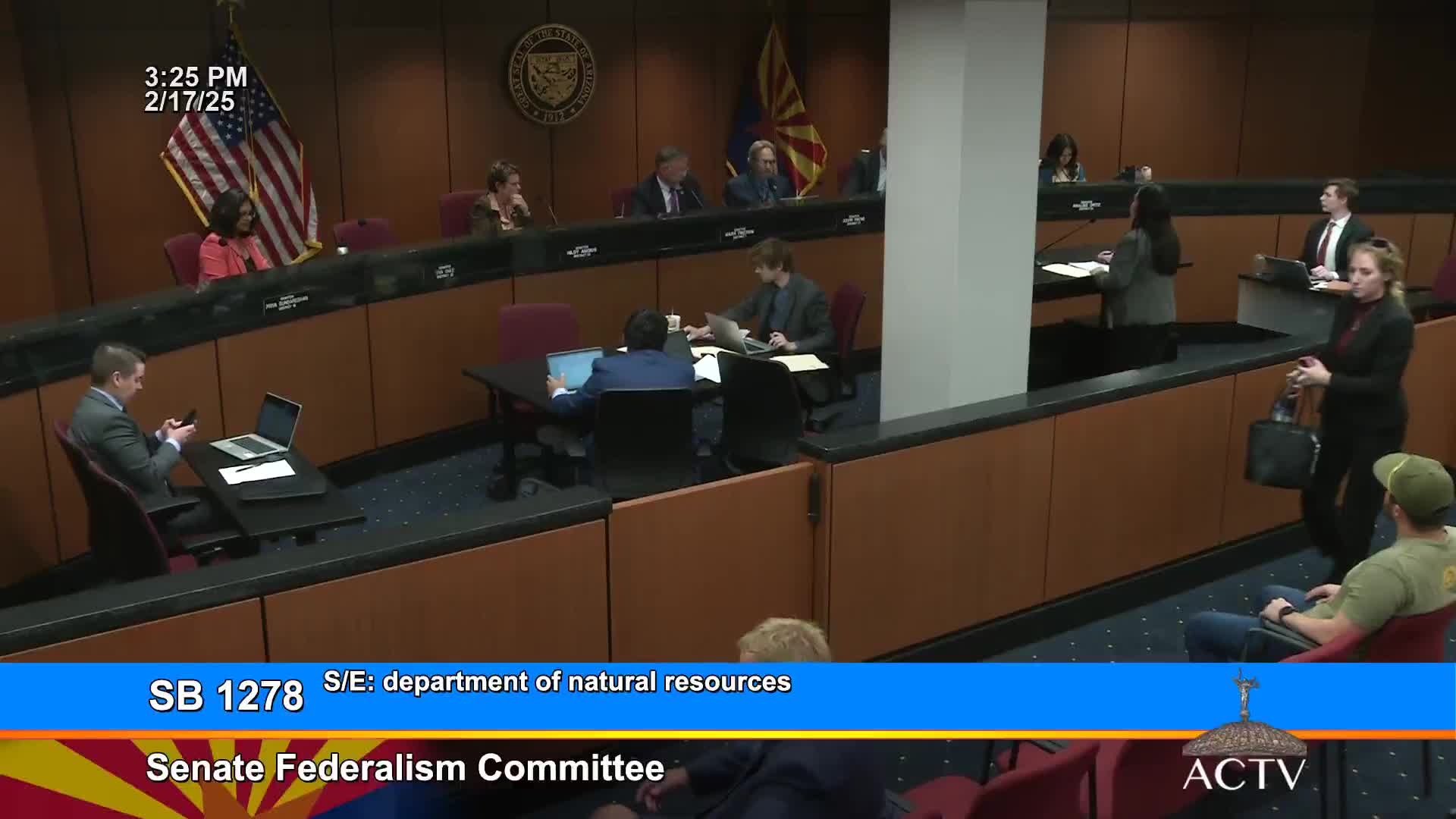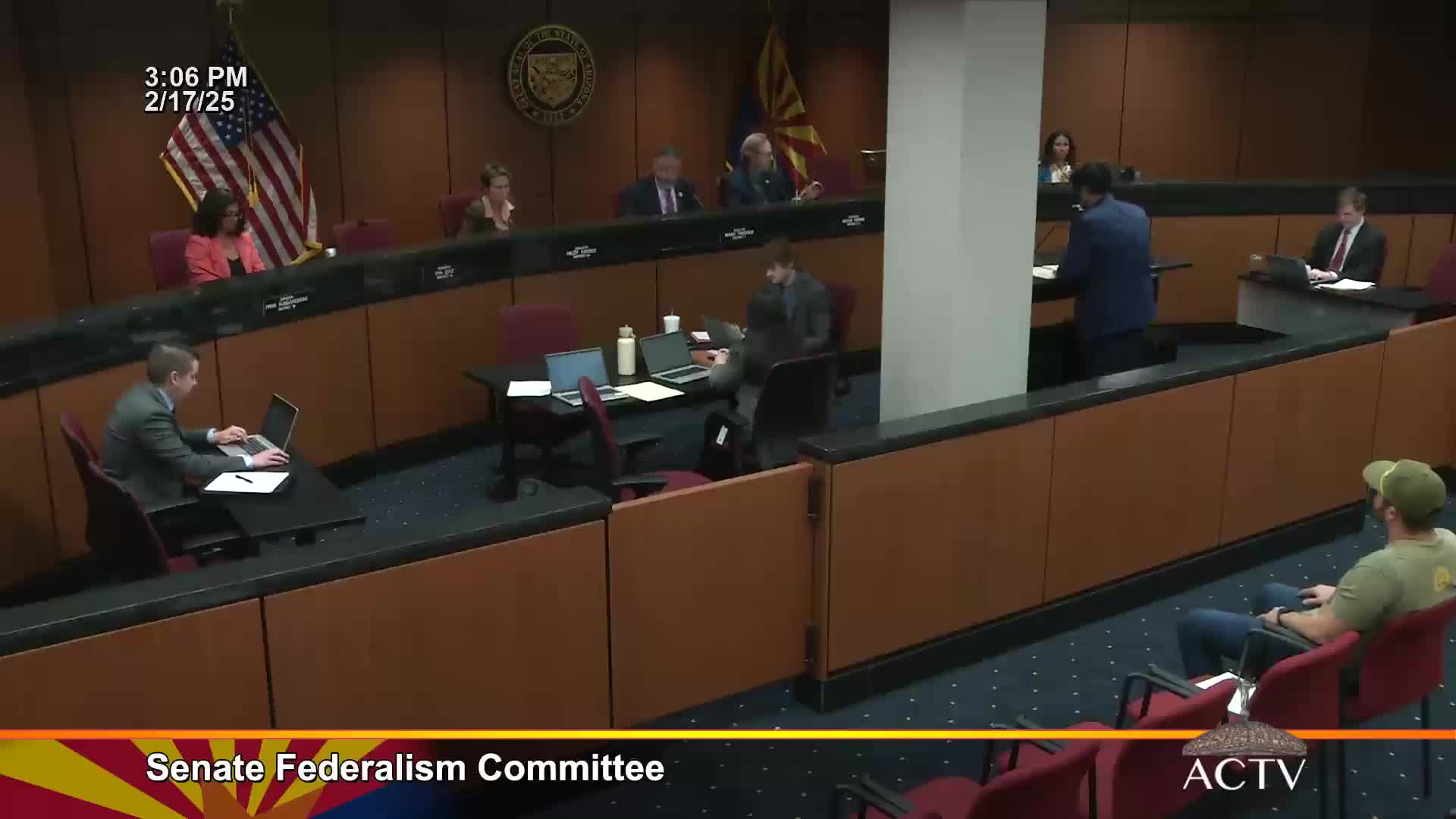Article not found
This article is no longer available. But don't worry—we've gathered other articles that discuss the same topic.

Committee backs resolution urging federal disposal of certain federal lands and opposing '30x30' conservation push

Panel approves bill requiring county approval before most federal officers may arrest, search or seize on non‑federal land

Committee backs bill to create Arizona Department of Natural Resources despite objections about authority and property rights

